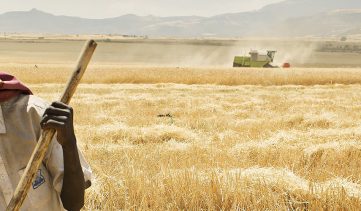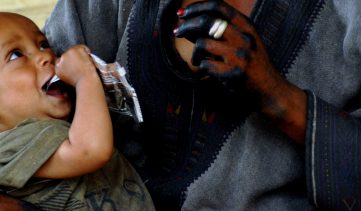During the 2016 World Economic Forum annual meeting in Davos, Switzerland, IFPRI hosted a side event on “Supporting Global and National Food and Nutrition Initiatives with Knowledge, Innovation, and Partnerships.” Discussion focused on how Compact2025 can use data, knowledge, and innovation to best support initiatives and partnerships—such as UN Sustainable Development Goals (SDGs), the Scaling Up Nutrition (SUN) Movement, and Zero Hunger Challenge.
Opening remarks by Ertharin Cousin, executive director of the World Food Programme, and David Nabarro, special advisor to the Secretary-General on the 2030 Agenda on Sustainable Development at the United Nations, catalyzed a lively discussion, which was moderated by Shenggen Fan, director general of IFPRI. Gerda Verburg, chair of the Global Agenda Council on Food and Nutrition Security of the World Economic Forum, offered concluding remarks.
Participants stressed the need for better data on nutrition, stating that many of the countries with the highest rates of malnutrition were lacking basic data on key nutrition-related indicators. In the absence of accurate, up-to-date, and country-specific data on nutrition, tracking progress and reaching international targets will remain difficult, if not impossible. Compact2025 will assess data gaps and support country processes to collect better and timelier data.
Also emphasized was the importance of greater inclusion of businesses, NGOs, and farmers to collect data and design programs. Dr. Fan noted that Compact2025 can help to engage with partners on the ground to help ensure that research results translate into concrete action. The importance of communicating results—an area of focus in the Compact2025 Knowledge and Innovation Hub—was discussed, with the aspiration that food security and nutrition can make headlines apart from topics such as famine and market disruptions.
Throughout the event, there was great enthusiasm that Compact2025 would play a critical role in providing better data and information, promoting country-led development efforts, and driving multi-sectoral engagement moving forward.



